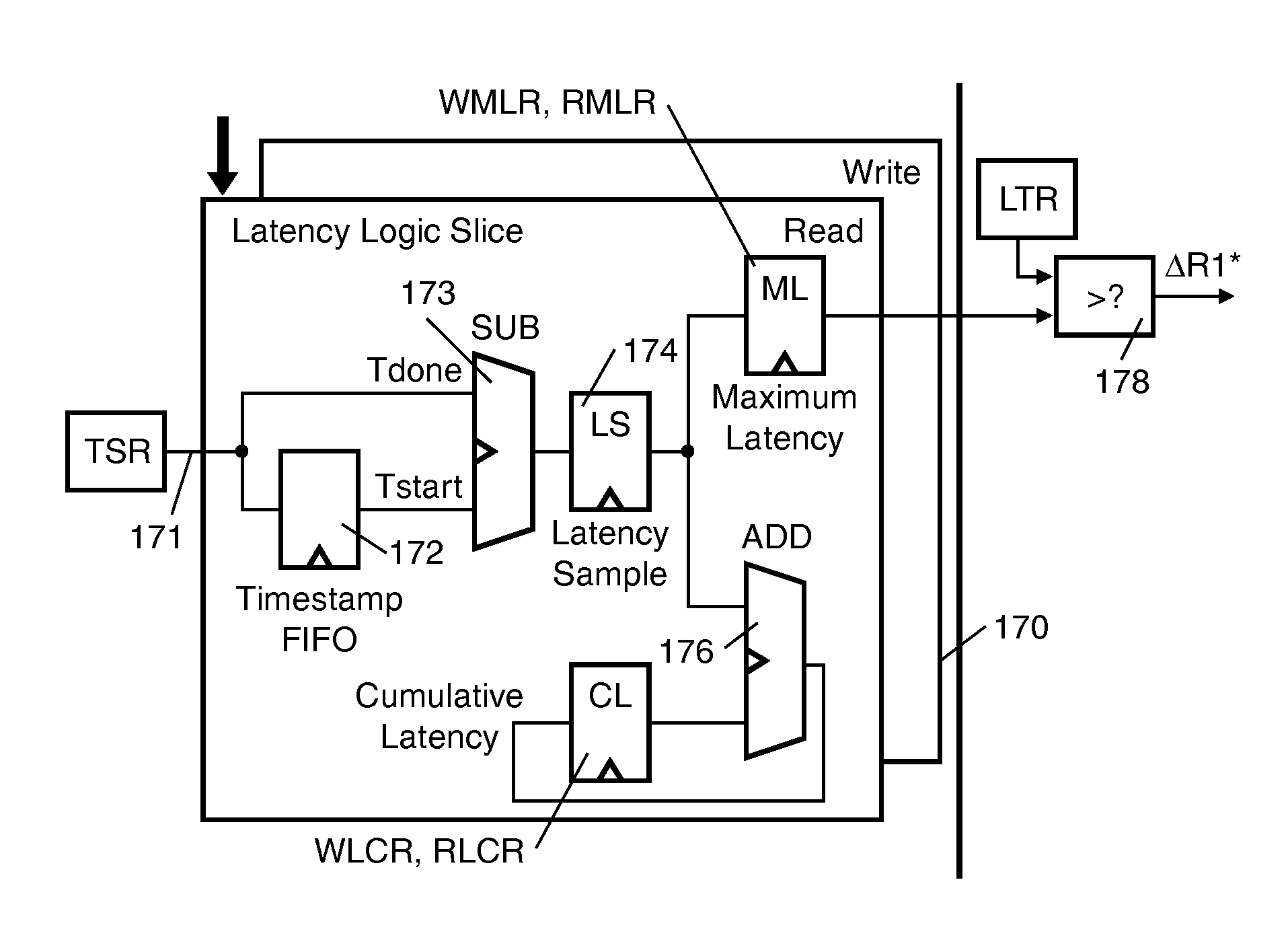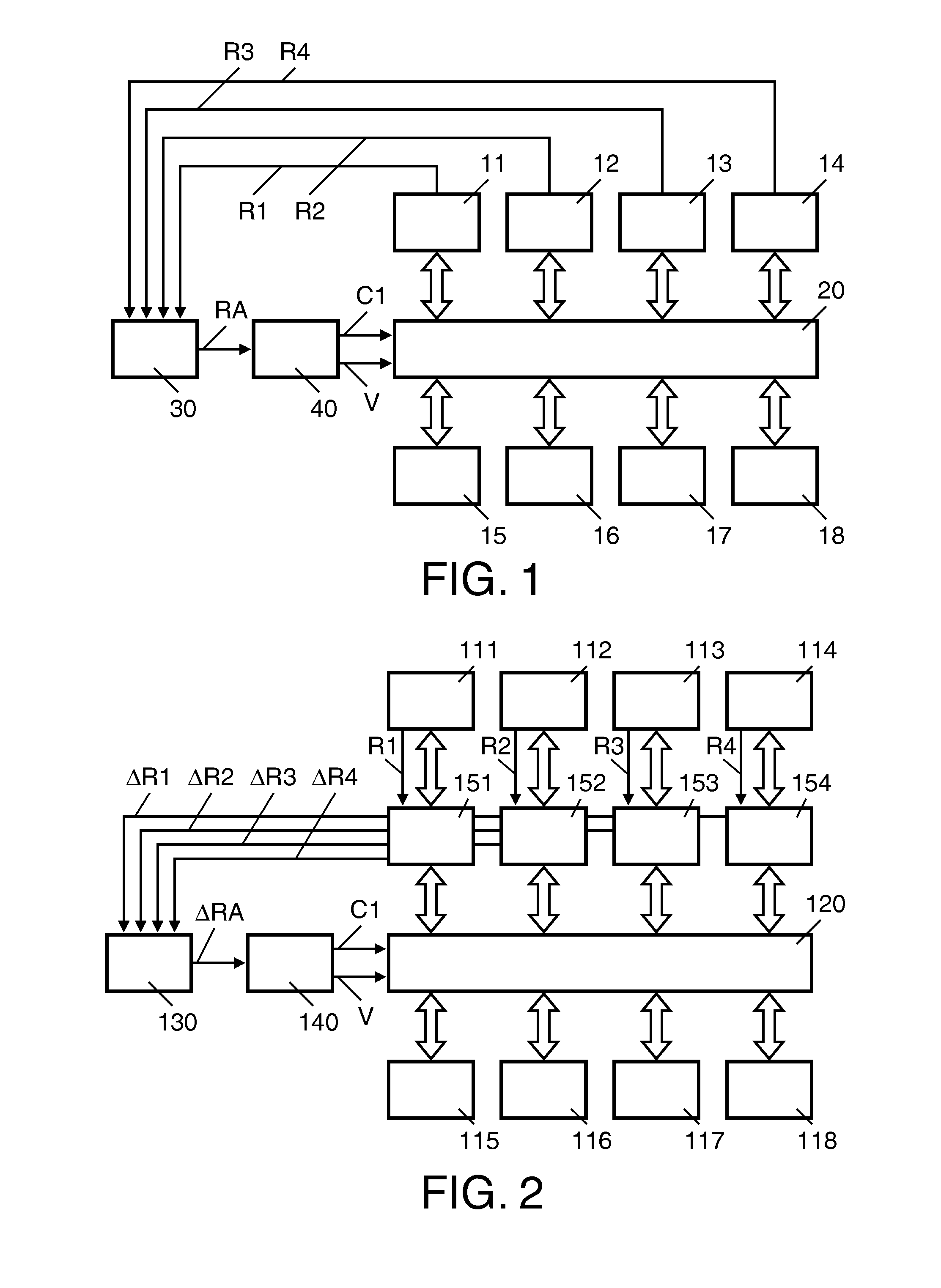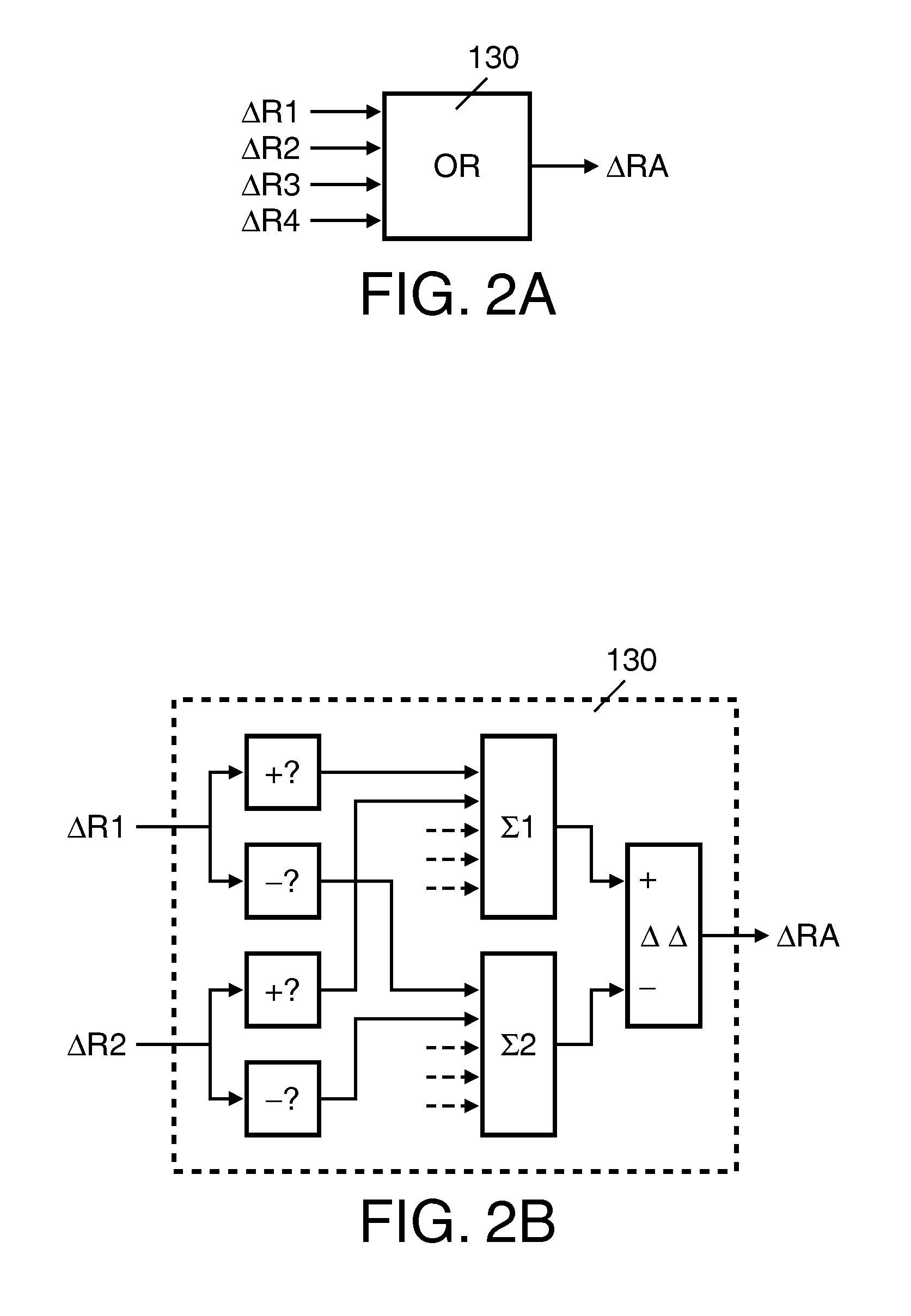Data-processing system and data-processing method
a data processing system and data processing technology, applied in computing, instruments, climate sustainability, etc., can solve problems such as retransmission, and achieve the effect of simple power control at run-time and reduced power consumption of a shared data processing facility
- Summary
- Abstract
- Description
- Claims
- Application Information
AI Technical Summary
Benefits of technology
Problems solved by technology
Method used
Image
Examples
second embodiment
[0044]FIG. 2 shows a data-processing facility according to the invention. Part therein corresponding to those in FIG. 1 have a reference number that is 100 higher. In this embodiment the data-processing facility comprises at least one monitor 151. The monitor 151-154 monitors an available performance of the data-handling facility 120 towards the data-processing device 111-114 to which it is coupled, and compares the available performance with the required performance R1. The monitors 151 calculate a difference ΔR1, ΔR2, ΔR3, ΔR4 between the available and the required performance, which is used to control the activity level of the data-handling facility 120. In the embodiment shown each of the data-processing facilities 111-114 has a respective monitor 151-154. The monitors 151-154 each provide a signal indicative for the difference ΔR1, ΔR2, ΔR3 and ΔR4 between the performance available to and the performance R1-R4 required by their processing device.
[0045]The signal indicative for ...
third embodiment
[0063]It is not necessary that each data-processing device has its own monitor. For example FIG. 6 shows a data-processing facility according to the invention, wherein a plurality of data-processing devices use a single monitor 250 on a time-shared basis. Parts therein corresponding to those in FIG. 1 have a reference number that is 200 higher. In the embodiment shown the shared facility is a memory 222, coupled to each of the processing devices 211-214 by a bus 221. In this embodiment the monitor 250 tracks parameters of transactions for a particular device selected by the general purpose processor 230 and specified by its ID in the bandwidth control register BCR and / or a latency control register WLCR, LRCR. In the AXI transaction protocol transactions comprise such a device identification. Alternatively other transaction protocols may be used that comprise such an identification of the devices involved in the transactions.
[0064]The general purpose processor 230 specifies for which...
PUM
 Login to View More
Login to View More Abstract
Description
Claims
Application Information
 Login to View More
Login to View More - R&D
- Intellectual Property
- Life Sciences
- Materials
- Tech Scout
- Unparalleled Data Quality
- Higher Quality Content
- 60% Fewer Hallucinations
Browse by: Latest US Patents, China's latest patents, Technical Efficacy Thesaurus, Application Domain, Technology Topic, Popular Technical Reports.
© 2025 PatSnap. All rights reserved.Legal|Privacy policy|Modern Slavery Act Transparency Statement|Sitemap|About US| Contact US: help@patsnap.com



